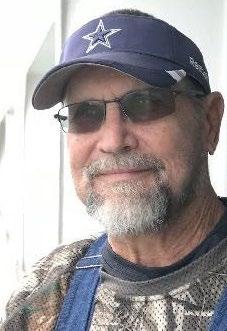
4 minute read
"THAT'S GOOD S***, MAYNARD!" A BACKWOODS PHRASE THAT BUILT A LEGACY OF INFLUENCE
BY MICHAEL MANNAcademic Coordinator and Offensive Line Coach, Sanger High School
The Power of Language in Coaching and Teaching
Every coach has their “go-to” sayings. While some are instructional or funny, others carry emotional weight and lasting impact. In the case of Coach Roger White, a single offbeat phrase—“That’s good s***, Maynard!”—left a mark that stretched across decades and shaped the lives of countless athletes.
As educators and coaches, we must consider how deeply our words affect young people. Phrases become anchors, and tone becomes the compass. What Coach White did was not accidental—it was rooted in expectation, encouragement, and excellence.
Legacy in a Phrase
In 2003, I was a short, chubby freshman lineman in West Texas. Our program was tough, and it was done so intentionally. The conditions were brutal, the expectations were sky-high, and mediocrity was not tolerated. Physicality wasn’t just practiced—it was a requirement.
I wasn’t the nastiest or the most aggressive. I had heart, but I lacked the toughness our culture demanded. That changed the day I won in the chute, and I heard Coach White yell those famous words: “That’s good s***, Maynard!”
At the time, I didn’t understand the phrase. Over time, I realized what it meant—it wasn’t about what you did, it was about who you became in that moment. It meant you did something rare, excellent, and worthy of praise. It wasn’t said often, and that’s what made it powerful. It meant you’d done something Coach White, the toughest man I knew, couldn’t let pass without praise.
Key Professional Takeaway: Precision & Purpose in Praise
Coach White was known for being tough, blunt, and fiercely loyal. He corrected constantly and held us to a standard few ever reach. But when you reached it—even for a moment—you felt it. That’s what separated him from others: he made sure his praise mattered.
Reflective Thoughts for Coaches
What is one phrase you use consistently? What does it communicate to your players or students?
When you give praise, is it specific and meaningful, or generic and routine?
Are your moments of correction rooted in care and growth or in frustration?
Do your students/athletes know what excellence looks like in your eyes, and how it feels when they reach it?
Stories of Impact: The Ripple Effect of Intentional Words
Coach White’s legacy was carried not only in wins, but in men—grown men—who now lead, parent, and coach using lessons he taught them in a chute or during a track workout. Here are a few moments that illustrate his deep influence:
A sprinter who hated distance running later taught his children the value of hard things.
A defensive lineman, proudest not of a trophy but of a 6th-place finish, but because of what Coach White saw in him.
Coaches who still emulate his toughness, his loyalty, and his quiet acts of love.
Athletes who remember the sting of his snuff-covered critiques—but more importantly, the pride of earning his praise.
One coach compared him to the Great White Buffalo of West Texas: rare, meaningful, and unforgettable.
Application to Your Practice
Here’s how you can turn Coach White’s philosophy into actionable growth:
Area Reflection Strategy
Language What do your most repeated phrases say about your culture?Create 1-2 signature phrases that communicate your values. Use them intentionally.
Praise Do your students know what excellence looks like to you?Reserve your highest praise for moments of genuine growth and excellence.
Correction Are your corrections building or breaking your relationships?Pair high expectations with consistent encouragement. Frame correction with belief.
Legacy What will your players say about your influence 20 years from now?Think long-term. Every interaction is a brick in your legacy. Use your words wisely.
Closing Reflection
Coach White hung up his whistle for the last time in January 2025. At his memorial, players from all eras gathered—some older, some just starting their lives. They didn’t come because of wins and losses. They came because of how he made them feel—seen, valued, tough, and capable.
At the end of it all, when he entered Heaven, I like to think the Lord smiled and said: “That’s good s***, Maynard.”
You don’t have to yell like Coach White. You don’t need his exact words. But you do need his intent— to mold young people through consistency, discipline, and love. Let your words matter. Let your praise be earned; and may your legacy be felt long after the final whistle blows.







